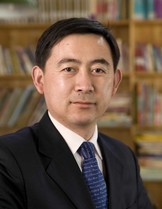Recently I have experienced a new method of promoting wine culture in China, and I’d like to tell you about it.
On 4th March, I attended the finals of the first ‘Wine Star of China’ competition as the chair. The competition was hosted in Park Hyatt Shanghai and took a similar form of the highly popular reality talent show ‘the Voice of China’.

18 wine educators from 12 cities in China gathered in Shanghai to attend the finals. The candidates formed six teams, each guided by a mentor, and were pitted against each other to win tours to renowned international and domestic wine regions.
I have been keeping an eye on the competition for a while, so I knew that these candidates are not only wine enthusiasts, but also multi-talents who are good at combining their specialties with promoting wine culture. I didn’t watch the preliminaries, so I was rather surprised and moved by the atmosphere of the finals.
At the preliminaries, the contestants were first asked to choose one out of ten topics and improvise a speech on the spot; after that, they needed to taste and comment on two wines. The preliminaries gave 18 winners.
The winners then gathered in Shanghai to be chosen by six mentors, who are veteran wine educators in China. The mentors are among the most famous wine experts in the trade, several of whom are currently studying towards the Master of Wine or Master of Sommelier (I will name them below).
To mimic the ‘Voice of China’ show, candidates were asked to start their performance with the mentors sitting backwards. If one or several of the mentors were happy with him/her performances and would like to invite him/her to join their own teams, they would turn their chairs to face the candidate.
As such six teams were formed. Together the mentors and the team members designed a team performance for the stage of the finals.
The first performing team, ‘the Young Phoenixes’, was led by Fongyee Walker, co-founder of Beijing-based Dragon Phoenix Wine Consultants. Wearing colourful costumes, the team sang a humorous Chinese pop song ‘So Annoyed (Zui Jin Bi Jiao Fan)’. They changed the lyrics to talk about troubles in wine studies and learning, and immediately brought laughter to the audience.

Second on stage is ‘the Yang Army’ led by LU Yang, Corporate Wine Director for Shangri-La Hotels and Resorts. A female candidate went up on stage first to sing the famous Chinese song ‘Because of Love (Yin Wei Ai Qing)’, with Lu joining the performance at the climax. The audience was clearly surprised to find out the singing skills of the wine expert, and I’m sure fans of Lu Yang who came to the event were in for a treat.
‘The Legion of Martin’ was the third team to perform. Wine educator Martin HAO, who recently joined Robert Parker’s team as a Chinese expert, played the highly popular theme song of Chinese TV series The Legend of the Condor Heroes using, behold, the flute.
The fourth team ‘The Ju Commando’ was led by Julien Boulard, a Nanning-based educator who came from France but speaks fluent Chinese. The team dressed up in white shirts and black trousers, and danced passionately to hip hop music.
Next on the stage were ‘quieter’ performers—the ‘CV Family’ led by veteran educator LI Siwei from Grand Wine Education. The team, as a ‘band’, performed music using wine related tools, including glasses and wine cases.
The final team, ‘The Mui Wine Family’, was led by Corinne Mui of Hong Kong-based wine education institute AWSEC. They treated the audience with hot and sexy dances, and even invited the audience to dance with them, heating the atmosphere of the competition to boiling point.
And that, I shall point out, was only the opening performance. The six mentors then drew lots to decide in what order their team members should go up stage to demonstrate their skills as wine educators.

Candidates were asked to explain a wine-related topic within three minutes, taste and comment on two wines, and answer randomly picked wine knowledge questions. Certainly, they also had to answer the harsh questions raised by the judges.
The winners of the competition were rewarded with wine region trips sponsored by wine trade bodies from Australia, New Zealand, Germany and Argentina, as well as the Chinese Skyline Gobi winery in Xinjiang.
The ‘Wine Star of China’ competition was organised by Aroma Republic, a wine culture education and promotion company built by a group of passionate Chinese wine enthusiasts.
The competition triggered heated discussions on the WeChat timelines of many in the Chinese wine trade. Some raised reasonable concerns regarding the actual profit of the competition—after all, events like this should be hosted for a commercial purpose, not charity.
That being said, there is little doubt that the ‘Wine Star of China’ competition has demonstrated a new method to promote wine culture in China.
What I have learnt is that to teach wine knowledge in China, you don’t need to keep a stern face, with your students sitting upright, stiff as a poker. The experience can be as light-hearted, lively and entertaining as the pop culture.
Translated by Sylvia Wu / 吴嘉溦
All rights reserved by Future plc. No part of this publication may be reproduced, distributed or transmitted in any form or by any means without the prior written permission of Decanter.
Only Official Media Partners (see About us) of DecanterChina.com may republish part of the content from the site without prior permission under strict Terms & Conditions. Contact china@decanter.com to learn about how to become an Official Media Partner of DecanterChina.com.












Comments
Submit